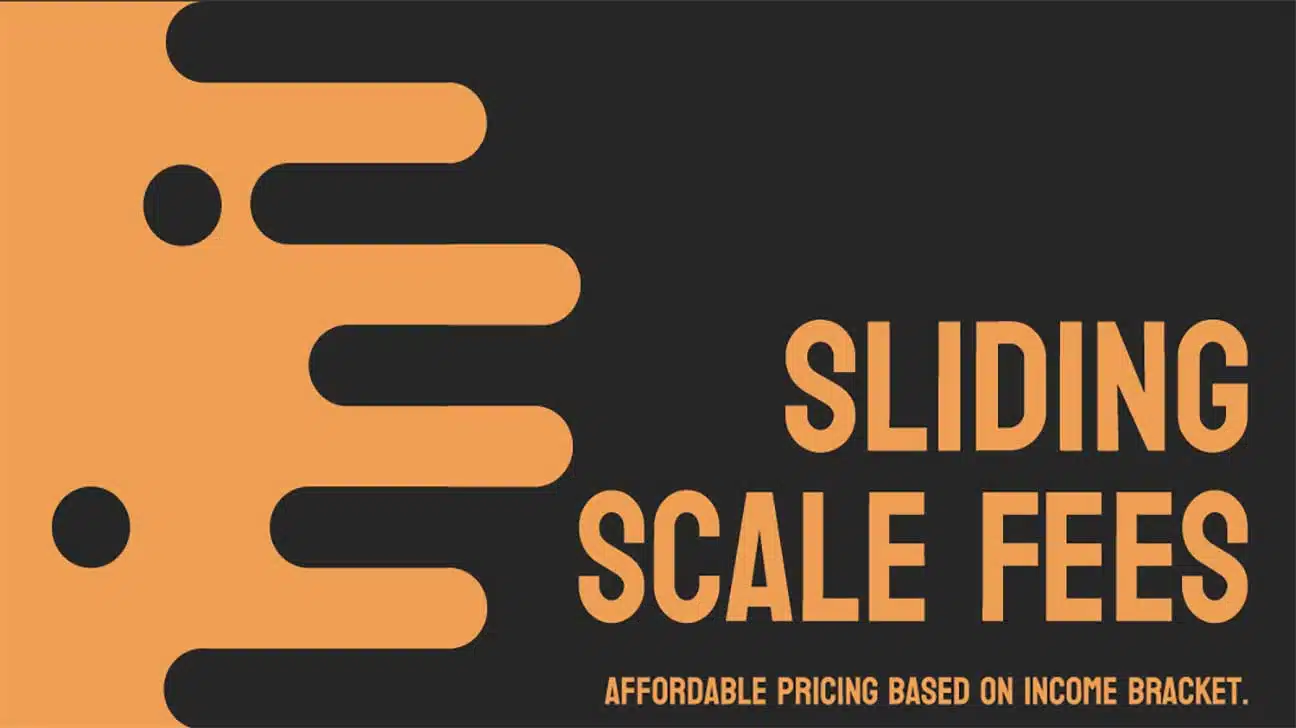
Many substance abuse treatment providers recognize that rehab programs are costly and that many people who require substance abuse treatment cannot afford it.
As a result, rehab centers will often help potential clients explore different avenues of funding for their healthcare services.
Income-based assistance can come from a variety of sources, including a sliding fee scale, government-funded health insurance programs, and more.
Financial Assistance Offered By Drug Rehab Centers
When rehab facilities offer financial assistance for drug and alcohol addiction treatment, it could include financial help and practical help finding other forms of funding.
Sources of funding based on income can include:
- a sliding fee scale through a rehab center
- Medicaid
- Medicare
- block grants
In reference to a rehab center itself offering financial help, the most common form this takes is a sliding fee scale.
However, a treatment center may have you look into other payment options before applying a sliding fee scale. You can call a rehab center helpline to learn about all of its payment options.
What Is A Sliding Fee Scale?
Simply put, a sliding fee scale adjusts the cost of treatment based on a client’s income, with those who earn less paying less.
To do so, a treatment center may first need to see your financial records to verify your income, and will then base what you will pay using a predetermined payment scale.
Payment Plans For Addiction Treatment
Although not necessarily a form of funding, drug rehab centers may also offer their clients payment plans to make their behavioral health services more accessible and affordable.
Payment plans involve spreading out the cost of treatment over a period of several months or even years. These financing plans may involve interest, so be sure to ask about all terms before signing up.
Other Forms Of Financial Assistance
If you need financial help paying for treatment options, a rehab center will often help you find as many means to pay for treatment as can apply to you.
This may mean helping you apply for state-funded programs or government-funded insurance plans, which may result in paying very little, if anything, for treatment.
Medicaid
Medicaid is an insurance program funded through the state and federal governments that offers coverage for alcohol and drug addiction treatment in addition to other medical services.
Medicaid offers health insurance coverage for low-income people and people with no income. It also offers plans for pregnant women and people with some disabilities.
Medicaid coverage includes common addiction treatment services such as:
- support groups
- short-term residential treatment
- outpatient programs
- inpatient treatment
- opioid rehabilitation programs
- detox services
- mental health treatment
Block Grants
Some people may qualify for financial assistance through block grant funding from the Substance Abuse and Mental Health Services Administration (SAMHSA).
SAMHSA offers block grants that private, for-profit and non-profit treatment centers may take advantage of.
Rehab facilities can pass these funds onto qualifying clients as a form of financial assistance or fund specific programs to make them free or low-cost for clients.
Block grants can be applied to many types of treatment including outpatient treatment, partial hospitalization programs (PHP), inpatient rehab programs, and other addiction recovery services.
Find Substance Use Disorder Treatment Today
If you or a family member is facing a substance use disorder, call Addiction Resource today to learn about starting the recovery journey.
Addiction Resource aims to provide only the most current, accurate information in regards to addiction and addiction treatment, which means we only reference the most credible sources available.
These include peer-reviewed journals, government entities and academic institutions, and leaders in addiction healthcare and advocacy. Learn more about how we safeguard our content by viewing our editorial policy.
- Mat-Su Health Services - Understanding Healthcare Services on a Sliding Fee Scale
https://www.mshsak.org/understanding-healthcare-services-on-a-sliding-fee-scale


